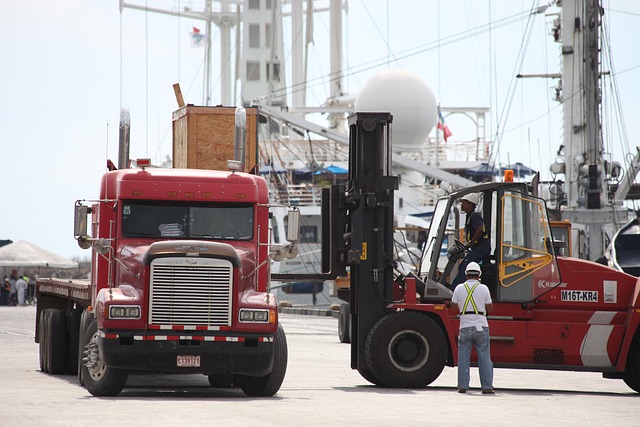Learn how to register your car in California with our comprehensive guide. From understanding the requirements and gathering necessary documents for VIN verification to submitting applications and fees, we’ve got you covered. This step-by-step process ensures your vehicle complies with state regulations. Master the art of VIN verification, a crucial aspect of car registration in California, and ensure your vehicle’s records are up-to-date for smooth sailing on California roads.
- Understanding the Requirements for Car Registration in California
- Gathering Necessary Documents for VIN Verification
- The Process of Conducting a Vehicle Identification Number (VIN) Check
- Submitting Applications and Fees for California Car Registration
- Maintaining Your Registered Vehicle's Compliance and Records
Understanding the Requirements for Car Registration in California

Before registering your car in California, it’s crucial to understand the state’s specific requirements. The process involves more than just filling out forms; you’ll need to ensure your vehicle meets certain criteria and has all necessary documents in order. One key step is completing a Vehicle Identification Number (VIN) verification, which serves as a critical component of the registration process. This involves confirming the vehicle’s authenticity and history using its unique VIN code.
In California, a mobile vin inspection or vin inspection conducted by an authorized entity can facilitate this process. A mobile vin verifier can visit you at your convenience to perform the necessary checks, ensuring that your car’s registration proceeds smoothly. By understanding these requirements upfront and leveraging services like mobile vin verification, you’ll streamline the registration experience and ensure compliance with California’s regulations.
Gathering Necessary Documents for VIN Verification

Before you start the registration process in California, it’s crucial to gather all the necessary documents for VIN (Vehicle Identification Number) verification. This step is a critical part of ensuring your car’s history and authenticity are accurately assessed. You’ll need the vehicle’s registration certificate from the previous state, if applicable, along with proof of insurance, a valid driver’s license, and a completed California Vehicle Registration application form.
Additionally, having access to a reliable mobile VIN verifier can streamline this process significantly. These tools allow you to quickly and conveniently obtain important vehicle data, including history reports and accident records, directly from the source—the National Motor Vehicle Title Information System (NMVTIS). This ensures a smoother vin inspection experience, especially if you’re dealing with a private sale or purchasing a used car.
The Process of Conducting a Vehicle Identification Number (VIN) Check

To register your car in California, conducting a Vehicle Identification Number (VIN) check is a crucial step. This process involves verifying that the vehicle’s VIN matches the information provided by the manufacturer and ensures it hasn’t been reported stolen or has any outstanding issues. You can facilitate this verification through various means, including using a mobile vin inspection service, where a professional will come to you for an on-site check. Alternatively, many California Department of Motor Vehicles (DMV) offices offer vin inspection services as part of the registration process.
When conducting a VIN verification, the inspector will use specialized tools and databases to cross-reference the vehicle’s unique VIN with recorded data. This includes checking against national and local databases to ensure the car’s history is clean. Once the inspection is complete, you’ll receive a report confirming that the VIN is valid and accurate, a critical step in ensuring your car’s registration goes smoothly. For those who opt for a mobile vin verifier, this service offers convenience by bringing the necessary tools directly to you, saving time and effort.
Submitting Applications and Fees for California Car Registration

Submitting Applications and Fees for California Car Registration involves a few key steps. First, you’ll need to gather all necessary documents, including your vehicle’s registration from the previous state, proof of insurance, and a completed Application for Title and Registration (Form DVF-14). It’s crucial to ensure that your car passes the California emissions test and safety inspection, which can be conveniently done at many local automotive service centers. Once all documents are in order, you must submit them along with the required fees to the California Department of Motor Vehicles (DMV) or a designated agent.
The process also requires a vin verification, typically handled through an online system or by submitting your vehicle identification number (VIN) during the application. For added convenience, many services offer mobile vin inspection and mobile vin verification, allowing you to complete these steps from the comfort of your home or office. Ensure that all information is accurate and up-to-date to avoid delays in receiving your California car registration.
Maintaining Your Registered Vehicle's Compliance and Records

Maintaining your registered vehicle’s compliance and records is crucial for a seamless driving experience in California. After registering your car, it’s essential to keep track of various requirements to stay up-to-date with state regulations. One critical aspect is ensuring regular VIN verification, which involves checking and updating the Vehicle Identification Number (VIN) data associated with your vehicle. This process helps verify the authenticity and history of your car, a step often facilitated through mobile vin inspection or a standard vin inspection service.
By maintaining accurate records, you can also simplify future transactions like selling or transferring ownership. Additionally, staying compliant reduces the risk of penalties for any missed deadlines or inaccuracies in your vehicle’s documentation. Regularly updating your records, including proof of insurance, registration renewals, and any necessary repairs documented through a mobile vin verification service, ensures your vehicle remains legally registered and road-ready.
Registering your car in California involves understanding the state’s requirements, gathering essential documents for VIN verification, completing a vehicle identification number (VIN) check, submitting applications with fees, and maintaining records. By adhering to these steps and keeping your vehicle’s compliance up-to-date, you’ll ensure a smooth registration process and legal operation on California roads. Remember, accurate and timely registration is crucial for your safety and the efficiency of navigating the state’s transportation network.
